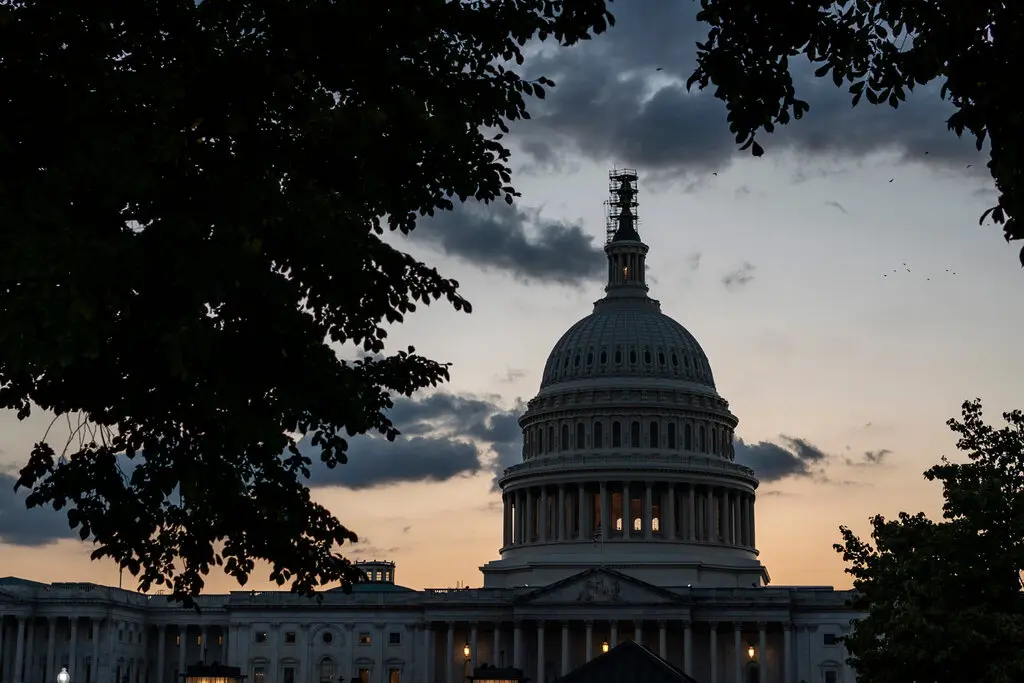As Capitol Hill experiences turbulence and democratic standards are compromised, the nation’s institutions face significant strain.

America’s Former Role as a Model
Not long ago, the United States was seen as a beacon of stable, predictable democracy, spreading its ideals worldwide through idealistic representatives. However, the American way now appears to many as a case study in disarray and discord, promoting extremism, challenging norms, and deepening the divide in a polarized nation.
Republican Uprising and Disruption
The recent Republican upheaval resulting in the unprecedented ousting of a House Speaker is itself a significant disruption. This turmoil on Capitol Hill coincides with a former president facing legal proceedings in New York, being accused of fraud while using increasingly inflammatory rhetoric and testing the limits of a gag order. Simultaneously, the delivery of military aid to counter Russian aggression in Ukraine has been obstructed by a vocal GOP minority in Congress, and the specter of another government shutdown looms.
Strain on Institutions and Profound Challenges
Institutions that were already under strain during Donald J. Trump’s presidency now confront a series of formidable tests. Can the judiciary maintain public trust while handling a former president, a candidate for his previous position, who faces numerous accusations of wrongdoing? Can Congress effectively select its leadership and address complex issues like immigration, fiscal matters, climate change, and gun violence? Can the presidency, led by an aging traditional politician like President Biden, serve as a means to heal societal wounds?
Biden’s Commitment to Change
President Biden expressed his commitment to change on Wednesday as he pledged to collaborate with whoever replaces the ousted Republican speaker, Kevin McCarthy. He stressed the need to alter the toxic atmosphere in Washington and encouraged dialogue, listening, and cooperation among opposing parties.
Differing Views in Washington
Yet, many in Washington held a less optimistic view, which sharply differed from Mr. Trump’s message. Outside the New York courthouse, the former president, despite the gag order, criticized the judge responsible for it. He asserted the system’s corruption and leveled accusations of corruption at D.C., Atlanta, and the broader system.

Trump’s Escalating Rhetoric
The former president has consistently preferred confrontation over conciliation. Lately, however, the aggressiveness of his remarks has intensified. Recent examples include threats to probe NBC News for “treason,” ridiculing Nancy Pelosi’s husband after an attack in their residence, advocating for shoplifters to be shot instantly, and suggesting Gen. Mark A. Milley’s execution for treason. Trump made his stance clear in an August social media post, declaring, “IF YOU GO AFTER ME, I’M COMING AFTER YOU!”
Republican Dynamics Pre- and Post-Trump
Though Trump’s fiery political style undoubtedly influenced the recent Republican upheaval, the seeds for such factionalism existed even before his presidency. Radical conservatives had previously pressured two former Republican speakers into resigning, though these incidents lacked the theatrical nature of Mr. McCarthy’s formal dismissal this week.
Internal Struggles Within Parties
While internal disputes within political parties aren’t uncommon, the current divisions within the Republican party appear more pronounced than those in the Democratic party. The latter has its controversies, such as the indictment of a senator on corruption charges. Historically, the US has seen other periods of heightened division, from McCarthyism to the Civil War.
A Unique Threat to Democracy
However, what distinguishes the present situation is the direct assault on the democratic foundation by some Republicans under Trump’s influence. This assault manifests in their refusal to acknowledge an electoral loss and their apathy, if not endorsement, towards political violence, as epitomized by the Capitol attack on Jan. 6, 2021.
Scholarly Observations on Democracy’s State
Daniel Ziblatt, a Harvard professor and co-author of significant works on democracy, warns of the dire consequences when a key political entity refuses to adhere to fundamental democratic principles.
Prolonged Public Dissatisfaction
The American populace has expressed prolonged dissatisfaction with the country’s direction. It’s been almost two decades since a majority expressed contentment with America’s trajectory in Gallup polls.
Eroding Confidence in Institutions
This widespread discontent has eroded faith in numerous American establishments. A majority of Americans lack confidence in various crucial institutions, as evidenced by Gallup’s findings that show significant confidence declines in 11 out of 16 institutions. Only the military and small businesses garnered support exceeding 50%.

**Putin’s Goal Achieved Internally in the U.S.?**
Intelligence agencies have previously identified one of Putin’s objectives in the 2016 election interference as causing discord within the American system. Observers suggest that the U.S. has now facilitated this chaos internally. If Putin is observing the current instability, he might be relishing the situation and feeling a sense of superiority.
**The Congressional Spending Fight and Ukraine**
Given the recent budgetary disputes in Congress, there’s a potential risk to security aid for Ukraine. Putin’s main concern might be a waning U.S. support for Ukraine, potentially impacting Ukraine’s military capabilities. As Congress debates additional financial support for Ukraine, Putin is likely keen on observing the political dynamics, especially concerning the upcoming U.S. presidential elections.
**Robert M. Gates’ Warning on Global Perceptions**
Former Defense Secretary Robert M. Gates cautioned about the potential dangerous perceptions of autocratic leaders like Putin and China’s President Xi Jinping. In a recent essay, Gates articulated that both leaders might see democracies, particularly the U.S., as declining entities. Such nations, as perceived by them, are becoming more isolationist, politically divided, and domestically turbulent. This dysfunctionality might be encouraging these autocratic rulers to make bold, risky decisions, which could have grave consequences.
**Gates on the Recent U.S. Political Turbulence**
Reacting to the recent political upheaval in the House, Gates reiterated his concerns about the pronounced dysfunction in the American political system.


